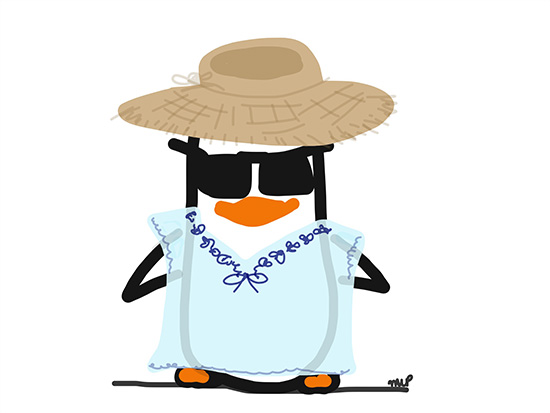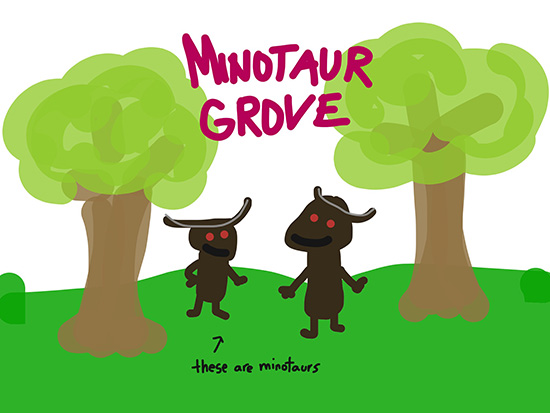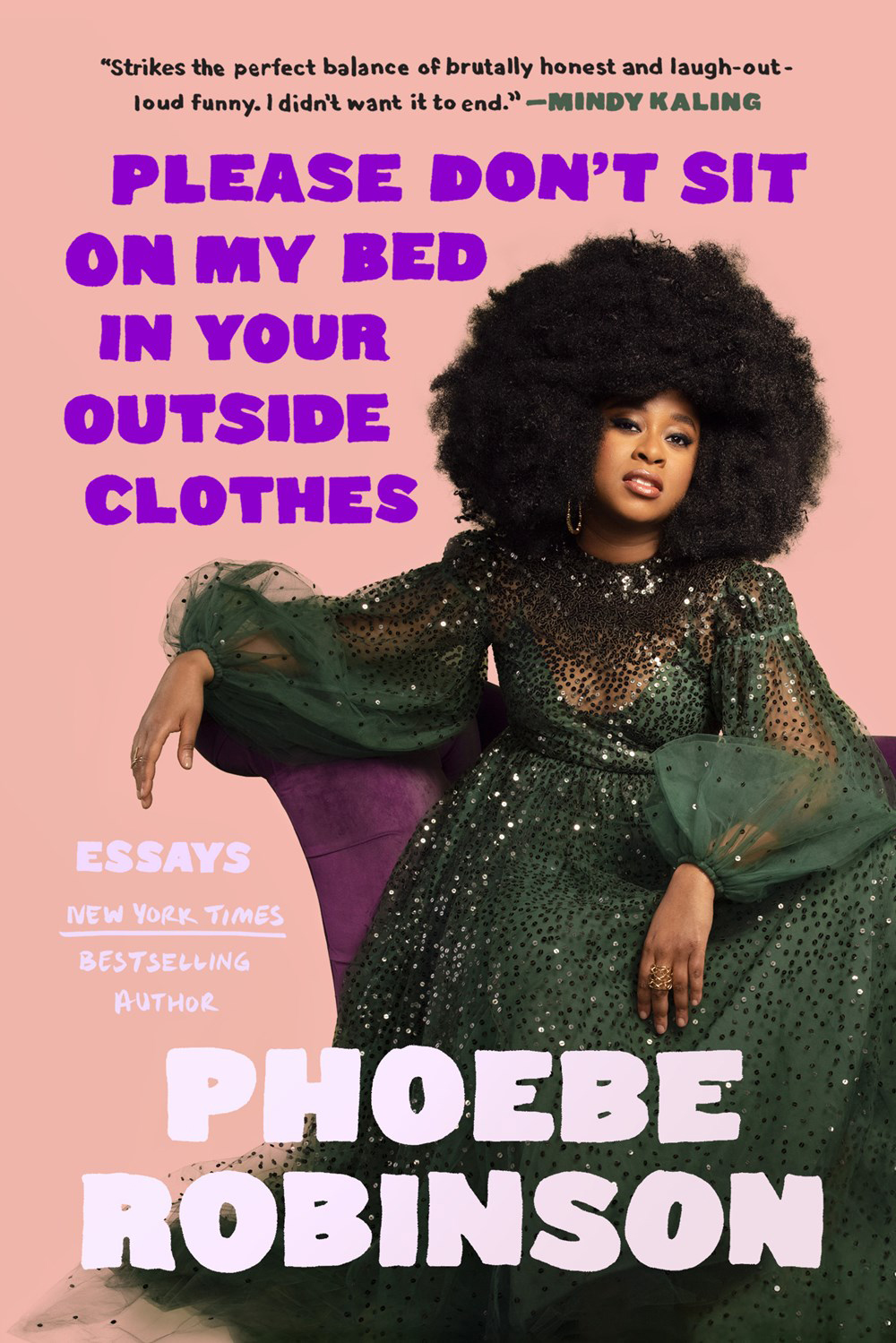On a recent visit to friends who have a 14-month-old child, David Sedaris marveled at the attention garnered by one tiny little being. "When you go to their house, everything is about the baby," says the best-selling author with the inimitable nasal voice. "The baby eats, and you watch the baby eat, then you watch the baby knock the telephone off the table." While Sedaris says he and his five siblings were by no means neglected, their early years were hardly the 24-hour-a-day tactile experience that seems de rigueur today. "Sure we were fed," he says, "but we weren’t followed around from room to room and congratulated for existing."
These days, there’s no shortage of praise for the National Public Radio humorist who has spun his Greek-American family’s hang-ups into pure comic gold. This month, fans can rejoice in the release of Dress Your Family in Corduroy and Denim, which includes essays that originally appeared in Esquire, The New Yorker and on NPR’s "This American Life." As in his previous collections, Naked, Barrel Fever, Holidays on Ice and Me Talk Pretty One Day, Sedaris’ tales crackle with the quirkiness that has become his cachet.
Though Sedaris, 47, may be inclined to embellish, the characters featured in his stories are very real: his sister Tiffany dumpster-dives for frozen turkeys, then cooks and eats them; and his mercurial late mother once locked her children out of the house on a snowy winter day because she wanted to be alone. Also in the spotlight is sister Amy, a popular actress and brilliant mimic who has collaborated with her brother on numerous stage plays. "My family isn’t really all that different from anyone else’s," says Sedaris in a phone conversation from his London flat. Then, pausing to reconsider, he adds, "Well, maybe they’re a bit more entertaining."
Sedaris profits from his family members’ peculiarities, but he is also sensitive to their feelings. When his sister Gretchen told him she felt uncomfortable being the focus of some of his stories, he respected her wishes, and now only mentions her in passing. He backed out of a lucrative movie deal for Me Talk Pretty One Day because he didn’t like the idea of someone else handling material about his family. Yet the temptation to tap into a seemingly endless font of freakish behavior is nearly irresistible, says Sedaris, and his family knows it. "My sister Lisa now prefaces every story with: ‘You can’t repeat this to anyone,’ says Sedaris. "And I’m trying to earn her trust."
Brother Paul Sedaris, who operates a North Carolina-based floor sanding business, is one family member who clearly relishes the attention. And he gets plenty of it. "I never imagined that people would phone him at two in the morning and say, ‘Do the rooster, do the rooster,’" says Sedaris, referring to the verbal tirade his 5-foot-4-inch brother unleashes in self defense, rendered so memorably in the Me Talk Pretty One Day essay, "You Can’t Kill the Rooster." For brother Paul, the publicity makes dollars—and sense. "People who’ve heard me talk about Paul now hire him to sand their floors," says Sedaris.
The new book’s title, which publisher Little, Brown describes as "willfully enigmatic," has no significance at all, says Sedaris. In fact, he says, Dress Your Family in Corduroy and Denim sounds like something really boring you’d find in the sewing department of a store. Regardless of how they interpret the title, readers will find themselves in stitches over Sedaris’ delirious accounts, which include a humiliating strip poker game, a pet parrot with a pitch-perfect imitation of a milk steamer and an eyebrow-less nine-year-old neighbor named after an alcoholic drink.
A little more than a decade ago, David Sedaris was an unknown Chicago-based performance artist and house cleaner whose career took a life-altering turn when "This American Life" host Ira Glass attended one of his performances at an area club. "Ira introduced himself," says Sedaris, "and about a year later when I moved to New York, he called me and asked if I had anything Christmas-y." Sedaris submitted "The Santaland Diaries," the unforgettable tale of his experiences working as a Christmas elf at Macy’s. Glass produced the piece for "Morning Edition," and the rest, as they say, is history.
"If I hadn’t met Ira Glass, I’d still be cleaning houses," says Sedaris, who now delivers lectures and readings to standing room only crowds from San Francisco to St. Paul. "I sure as heck wouldn’t be writing my fifth book." Despite his success, Sedaris remains a mass of insecurities. He says introductions loaded with praise just make him nervous. "I’m standing backstage thinking, Oh, don’t say that, don’t say that," he says. "You’re being set up in a way."
Though Sedaris spends large chunks of time touring in the U.S., he lives abroad, dividing his time between London and France (the latter is the site of many of his laugh-out-loud linguistic misadventures in Me Talk Pretty One Day). Those lucky enough to see the humorist in action know that he frequently takes notes while delivering a story, marking where people laugh or don’t respond. The feedback helps in the writing and editing process, he says, adding that a story can change significantly over the course of a tour. Audience reactions—like the dismay elicited from a description of submerging an injured rodent in a bucket of water in the new collection’s "Nuit of the Living Dead"—are often surprising.
"For some reason, you can get on stage and talk about punching your sister in the stomach and nobody bats an eye, but if you talk about pulling the wings off a fly or drowning a mouse, the audience just goes, ohhhhhhhhhh." In truth, what the author covets most is not the giggle, but the gasp ("I love that sound, just an intake of air") prompted by a truly outrageous anecdote. Happily for Sedaris and his fans, life as he knows it has produced a seemingly endless supply.
Allison Block’s own family includes a musician who "plays" the armpits and a portly pit bull who has trained his owner to fetch.




























